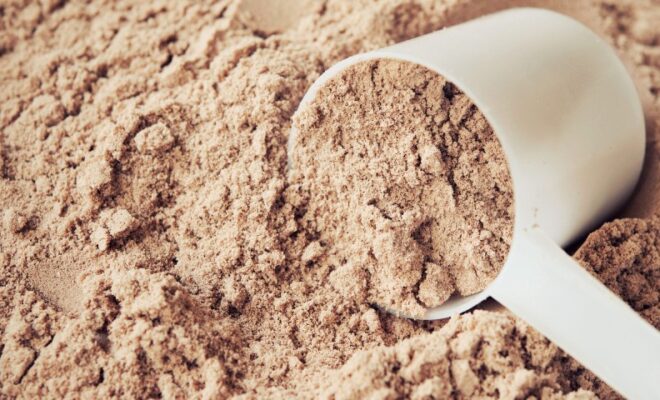Empowering Moms: How To Improve Breastmilk Supply

Are you a new mom struggling to produce enough breast milk for your little one? Don’t worry—you’re not alone. Many new moms face challenges when it comes to maintaining a healthy breastmilk supply. But there’s good news—you can improve your breastmilk production and ensure your baby gets all the nourishment it needs.
This article will guide you through practical techniques to empower new moms and boost breastmilk supply. We will explore natural remedies, dietary changes, and lifestyle adjustments that can positively impact lactation. We’ll cover everything from incorporating certain foods into your diet to implementing regular breastfeeding schedules.
Whether you’re a first-time mom or have been through this before, the tips and strategies provided here will help you feel more confident and in control of your breastfeeding journey. Say goodbye to the stress and frustration of a low milk supply, and hello to a thriving breastfeeding relationship with your baby.
Understanding The Importance Of Breastmilk Supply
Breastmilk is an essential source of nutrition for newborns and infants. It contains the perfect balance of nutrients, antibodies, and enzymes necessary for a baby’s growth and development. Breastfeeding not only provides nourishment but also offers numerous health benefits for both mom and baby.
Maintaining an adequate breast milk supply ensures your baby receives the nutrients for healthy growth. Breastmilk is easily digestible, promotes healthy brain development, and helps protect against infections and diseases. It also fosters a strong bond between mother and child.
Factors That Can Affect Breastmilk Supply
Several factors can impact a mother’s breast milk supply. Understanding these factors can help identify potential issues and address them effectively. Some common factors affecting breastmilk production include:
- Inadequate breastfeeding frequency: Breast milk supply is directly related to breastfeeding frequency. Infrequent or inconsistent breastfeeding can signal the body to produce less milk.
- Poor latch: An improper latch can hinder milk transfer and decrease production. Ensuring a proper latch is essential for effective breastfeeding.
- Stress and fatigue: High stress and fatigue levels can interfere with the hormones responsible for milk production. Finding ways to relax and get enough rest is crucial for maintaining a healthy breastmilk supply.
Signs Of Low Breastmilk Supply
It’s essential to be aware of the signs that may indicate a low breastmilk supply. While every baby is different, some common signs to watch out for include:
- Insufficient weight gain: If your baby is not gaining weight at a healthy rate, it may be a sign of inadequate milk supply.
- Frequent feedings: Babies may show signs of hunger more frequently if they are not getting enough milk during each feeding.
- Low urine output: A decrease in wet diapers can indicate insufficient milk intake.
If you notice any of these signs, it’s essential to consult with a lactation specialist or a healthcare provider at Grand Forks Clinic for guidance and support.
Tips To Naturally Improve Breastmilk Supply
Fortunately, you can try several natural methods to boost your breastmilk supply. Generations of moms have used these techniques, which have proven effective. Here are some tips to consider:
- Establish a consistent breastfeeding routine: Regular and frequent breastfeeding sessions can help stimulate milk production. Aim for at least 8 to 12 daily feedings in the early weeks.
- Ensure a proper latch: A good latch ensures efficient milk transfer and stimulates milk production. If you’re experiencing difficulties, seek guidance from a lactation consultant.
- Practice breast compression: Gentle compression during breastfeeding can help increase milk flow and encourage the baby’s active sucking.
- Pump between feedings: Adding pumping sessions between feedings can help stimulate milk production and increase overall supply.
- Avoid pacifiers and bottles: Introducing pacifiers and bottles too early may interfere with breastfeeding and decrease milk supply.
Remember, every mom’s breastfeeding journey is unique, and it may take time to see the desired results. Be patient with yourself and your baby as you work towards improving your breastmilk supply.
The Role Of Diet And Hydration In Increasing Breastmilk Supply
What you eat and drink can significantly impact your breast milk supply. Here are some dietary considerations to boost milk production:
- Stay hydrated: Drink plenty of water throughout the day to ensure optimal hydration, which is essential for milk production.
- Eat a balanced diet: Include a variety of nutrient-rich foods in your meals, such as whole grains, lean proteins, fruits, and vegetables. Some foods, like oats and fenugreek, are believed to have lactogenic properties and can help increase milk supply.
- Consider lactation-friendly herbs: Certain herbs, such as fennel, nettle, and blessed thistle, have been traditionally used to support lactation. Consult a healthcare professional or lactation consultant before incorporating herbal supplements into your diet.
- Avoid or limit certain foods: Some foods, like caffeine and alcohol, can affect milk production and may be best consumed in moderation or avoided altogether.
You are maintaining a nutritious diet and staying hydrated to support your breastmilk supply. Remember to listen to your body and make choices that promote your overall well-being and milk production.
Effective Breastfeeding Techniques To Boost Milk Production
In addition to establishing a consistent breastfeeding routine and ensuring a proper latch, other techniques can help increase milk production. The following strategies can be beneficial:
- Breast massage: Massaging your breasts before and during breastfeeding can stimulate milk flow and improve milk letdown.
- Switch nursing: Switching sides during a feeding session can encourage increased milk production. Offer each breast multiple times to ensure thorough emptying.
- Breast compression: Applying gentle pressure to the breast while your baby is actively sucking can help increase milk flow and encourage deeper nursing.
Implementing these techniques can help optimize milk production and ensure your baby is getting enough nourishment. For personalized advice and support, feel free to seek guidance from a lactation consultant.
The Benefits Of Skin-To-Skin Contact And Frequent Nursing
Skin-to-skin contact and frequent nursing are essential components of successful breastfeeding. These practices offer numerous benefits for both mom and baby, including:
- Enhanced milk production: Skin-to-skin contact stimulates the release of hormones that promote milk production, while frequent nursing ensures adequate milk removal, signaling the body to produce more milk.
- Bonding and emotional connection: Skin-to-skin contact fosters a deep bond between mom and baby, promoting emotional well-being for both.
- Improved milk transfer: Frequent nursing encourages effective milk transfer and helps stimulate milk production.
Make it a priority to spend quality time with your baby, engaging in skin-to-skin contact and frequent nursing sessions. These practices support breastfeeding and strengthen your connection with your little one.
Herbal Supplements And Remedies To Enhance Breastmilk Supply
If you’re looking for additional support to boost your breastmilk supply, herbal supplements and remedies may be worth considering. Here are some commonly used options:
- Fenugreek: Fenugreek is an herb used for centuries to increase milk production. It is available in capsule form or as a tea.
- Blessed thistle: Blessed thistle is another herb believed to have lactogenic properties. It is often used in combination with fenugreek for enhanced results.
- Goat’s rue: Goat’s rue is an herbal supplement traditionally used to support the milk supply of breastfeeding mothers.
It’s important to note that while herbal remedies can be effective for some women, they may not work for everyone. It’s always advisable to consult with a healthcare professional or lactation consultant before starting any herbal supplements.
Support And Resources For Breastfeeding Moms
Breastfeeding can sometimes feel overwhelming, especially when faced with challenges. Thankfully, there are numerous sources of support and resources available to help you along your breastfeeding journey:
- Lactation consultants: Lactation consultants are trained professionals who specialize in supporting breastfeeding moms. They can provide personalized advice, troubleshooting, and guidance throughout your breastfeeding experience.
- Breastfeeding support groups: Joining a breastfeeding support group can connect you with other moms who are going through similar experiences. It provides a safe space to share concerns, seek advice, and find encouragement.
- Online resources: Many reputable websites, blogs, and forums are dedicated to breastfeeding support. These resources offer valuable information, tips, and a community of like-minded individuals.
Remember, you don’t have to navigate your breastfeeding journey alone. Reach out for support and utilize the available resources to empower yourself and overcome any challenges you may encounter.
Conclusion: Empowering Moms To Nourish Their Babies
Breastmilk is a precious gift that you can provide to your baby. By understanding the importance of breastmilk supply, identifying factors that can affect it, and implementing strategies to improve production, you can empower yourself as a breastfeeding mom.
From establishing a consistent breastfeeding routine to incorporating lactation-friendly foods into your diet, each step can improve your breast milk supply. Remember to prioritize self-care, seek support, and trust in your body’s ability to nourish your baby.
With patience, perseverance, and a little help, you can overcome obstacles and enjoy a fulfilling breastfeeding journey. Empower yourself, embrace the bond with your baby, and cherish the unique experience of breastfeeding. You’ve got this, Mom!









